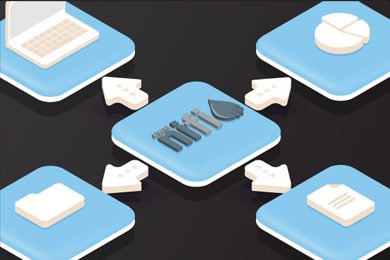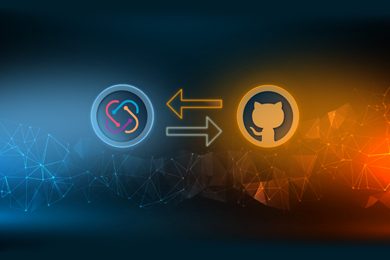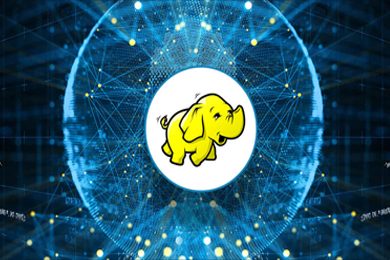This plan includes
- Limited free courses access
- Play & Pause Course Videos
- Video Recorded Lectures
- Learn on Mobile/PC/Tablet
- Quizzes and Real Projects
- Lifetime Course Certificate
- Email & Chat Support
What you'll learn?
- What is Apache NiFi?
- The Core Concepts of Apache NiFi
- Install Apache NiFi in Standalone Mode
- High Level Overview of Key NiFi Features
- Hands-on with Apache NiFi
Course Overview
What is Apache NiFI?
Apache NiFi is a robust open-source Data Ingestion and Distribution framework and more. It can propagate any data content from any source to any destination.
NiFi is based on a different programming paradigm called Flow-Based Programming (FBP). I’m not going to explain the definition of Flow-Based Programming. Instead, I will tell how NiFi works, and then you can connect it with the definition of Flow-Based Programming.
How NiFi Works?
NiFi consists of atomic elements which can be combined into groups to build simple or complex dataflow.
NiFi as Processors & Process Groups.
What is a Processor?
A Processor is an atomic element in NiFi which can do some specific task.
The latest version of NiFi have around 280+ processors, and each has its responsibility.
Ex. The GetFile processor can read a file from a specific location, whereas PutFile processor can write a file to a particular location. Like this, we have many other processors, each with its unique aspect.
We have processors to Get Data from various data sources and processors to Write Data to various data sources.
The data source can be almost anything.
It can be any SQL database server like Postgres, or Oracle, or MySQL, or it can be NoSQL databases like MongoDB, or Couchbase, it can also be your search engines like Solr or Elastic Search, or it can be your cache servers like Redis or HBase. It can even connect to Kafka Messaging Queue.
NiFi also has a rich set of processors to connect with Amazon AWS entities likes S3 Buckets and DynamoDB.
NiFi have a processor for almost everything you need when you typically work with data. We will go deep into various types of processors available in NiFi in later videos. Even if you don’t find a right processor which fit your requirement, NiFi gives a simple way to write your custom processors.
Now let’s move on to the next term, FlowFile.
What is a FlowFile?
The actual data in NiFi propagates in the form of a FlowFile. The FlowFile can contain any data, say CSV, JSON, XML, Plaintext, and it can even be SQL Queries or Binary data.
The FlowFile abstraction is the reason, NiFi can propagate any data from any source to any destination. A processor can process a FlowFile to generate new FlowFile.
The next important term is Connections.
In NiFi all processors can be connected to create a data flow. This link between processors is called Connections. Each connection between processors can act as a queue for Flow Files as well.
The next one is Process Group and Input or Output port.
In NiFi, one or more processors are connected and combined into a Process Group. When you have a complex dataflow, it’s better to combine processors into logical process groups. This helps in better maintenance of the flows.
Process Groups can have input and output ports which are used to move data between them.
The last and final term you should know for now is the Controller Services.
Controller Services are shared services that can be used by Processors. For example, a processor which gets and puts data to a SQL database can have a Controller Service with the required DB connection details.
Controller Service is not limited to DB connections.
#learnwithmanoj #apachenifi #nifi #dataflow #datapipeline #etl #opensource #bigdata #opensource #datastreaming #hortonworks #hdf #nifitutorial #nifitraining
Pre-requisites
- Basics Knowledge of ETL is Preferred
- Hands on in Database Systems like PostgreSQL, MongoDB, etc. is Preferred
- Basic Knowledge of Big Data is Preferred
Target Audience
- Software Engineers
- Data Engineers
- Software Architects
- Data Scientists
Curriculum 19 Lectures 01:23:18
Section 1 : Apache NiFi Introduction
- Lecture 2 :
- What is a Data Flow, Data Pipeline & ETL?
- Lecture 3 :
- Why should we use a Framework for Data Flow?
- Lecture 4 :
- What is Apache NiFi?
Section 2 : Apache NiFi Installation
- Lecture 1 :
- Installing Apache NiFi in a Mac/Linux
- Lecture 2 :
- Installing Apache NiFi in a Windows Machine
Section 3 : Apache NiFi Basics
- Lecture 1 :
- NiFi User Interface
- Lecture 2 :
- Core NiFi Terminologies
- Lecture 3 :
- More on FlowFiles of NiFi
- Lecture 4 :
- Types of Processors Available in NiFi
- Lecture 5 :
- Processor Configuration, Connection & Relationship in NiFi
- Lecture 6 :
- Connection Queue & Back Pressure in NiFi
Section 4 : DataFlow 101- Hands-on with Apache NiFi
- Lecture 1 :
- Working with Attributes & Content in NiFi
- Lecture 2 :
- Working with Expression Language in NiFi
- Lecture 3 :
- More on Expression Language Functions in NiFi
- Lecture 4 :
- Working with Process Group, Input Port & Output Port in NiFi
- Lecture 5 :
- Working with Templates in NiFi
- Lecture 6 :
- Working with Funnel in NiFi
- Lecture 7 :
- Bonus Lecture
Our learners work at
Frequently Asked Questions
How do i access the course after purchase?
It's simple. When you sign up, you'll immediately have unlimited viewing of thousands of expert courses, paths to guide your learning, tools to measure your skills and hands-on resources like exercise files. There’s no limit on what you can learn and you can cancel at any time.Are these video based online self-learning courses?
Yes. All of the courses comes with online video based lectures created by certified instructors. Instructors have crafted these courses with a blend of high quality interactive videos, lectures, quizzes & real world projects to give you an indepth knowledge about the topic.Can i play & pause the course as per my convenience?
Yes absolutely & thats one of the advantage of self-paced courses. You can anytime pause or resume the course & come back & forth from one lecture to another lecture, play the videos mulitple times & so on.How do i contact the instructor for any doubts or questions?
Most of these courses have general questions & answers already covered within the course lectures. However, if you need any further help from the instructor, you can use the inbuilt Chat with Instructor option to send a message to an instructor & they will reply you within 24 hours. You can ask as many questions as you want.Do i need a pc to access the course or can i do it on mobile & tablet as well?
Brilliant question? Isn't it? You can access the courses on any device like PC, Mobile, Tablet & even on a smart tv. For mobile & a tablet you can download the Learnfly android or an iOS app. If mobile app is not available in your country, you can access the course directly by visting our website, its fully mobile friendly.Do i get any certificate for the courses?
Yes. Once you complete any course on our platform along with provided assessments by the instructor, you will be eligble to get certificate of course completion.
For how long can i access my course on the platform?
You require an active subscription to access courses on our platform. If your subscription is active, you can access any course on our platform with no restrictions.Is there any free trial?
Currently, we do not offer any free trial.Can i cancel anytime?
Yes, you can cancel your subscription at any time. Your subscription will auto-renew until you cancel, but why would you want to?
Instructor

73334 Course Views
1 Courses
I'm a Big Data Evangelist, JavaScript Lover, Web Developer & Performance Freak. I'm passionate about programming since I was 14 and I'm always willing to learn new things and continue to seek to improve myself.
​I have decided to teach what I have learned and started to train in learnfly.
"My main objective is to provide high-quality course content to all my students in an easy and understanding way."



 Tech & IT
Tech & IT
 Business
Business
 Coding & Developer
Coding & Developer
 Finance & Accounting
Finance & Accounting
 Academics
Academics
 Office Applications
Office Applications
 Art & Design
Art & Design
 Marketing
Marketing
 Health & Wellness
Health & Wellness
 Sounds & Music
Sounds & Music
 Lifestyle
Lifestyle
 Photography
Photography

















